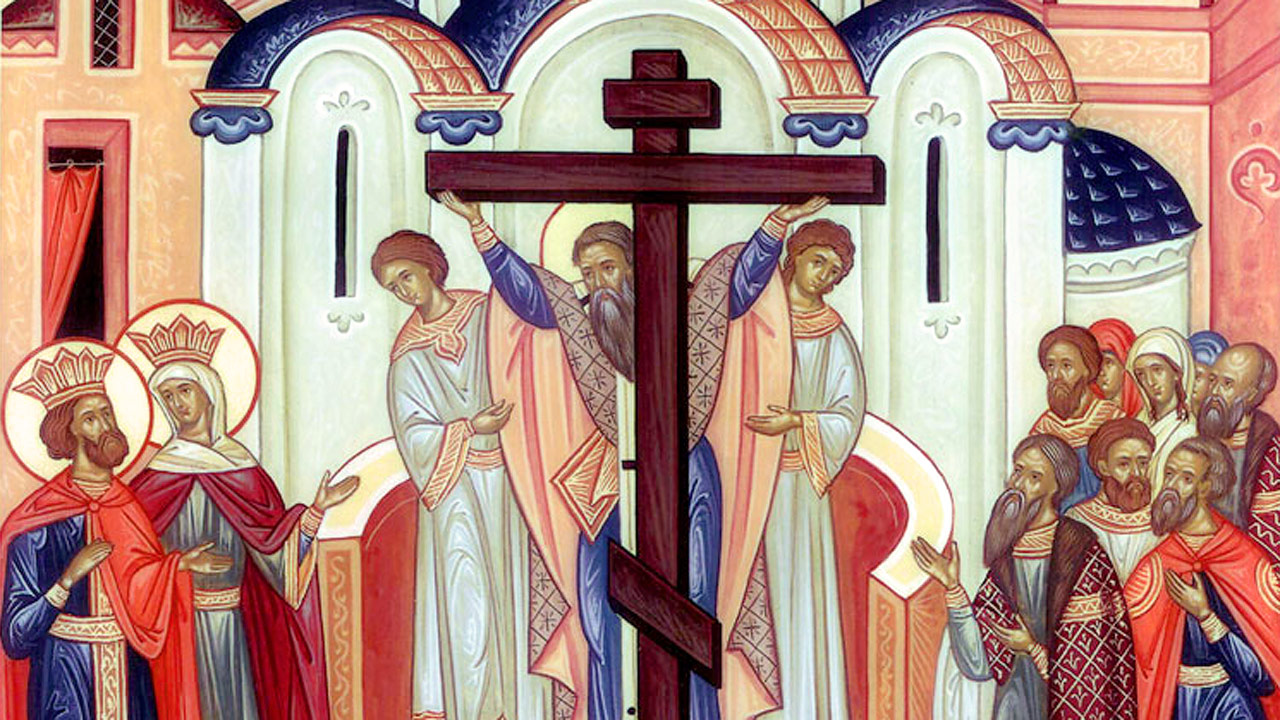Well, today is the convergence of two anniversaries. One is the Feast of the Exaltation of the Cross, and the other is the anniversary of Dante’s passing, and this year being the 700th anniversary. Dr. R. Jared Staudt wrote in the Catholic World Report (“Our Greatest Poet: Celebrating Dante after 700 Years”): “It is fitting that Dante died on the day when we commemorate the triumph of the Holy Cross, as he narrates the drama of salvation as it plays out concretely over the course of life, showing its eternal significance.”
We Catholics are a strange lot, it must appear to those outside the faith. Here we are celebrating the very instrument of Christ’s torture and death. Actually the Eastern orthodox, Anglicans, and some Lutherans also commemorate this day. Why? First let’s see how the feast came about. It started with St. Helena, the Emperor Constantine’s mother, going on pilgrimage to Jerusalem to see the very places of the New Testament. At Calvary where Christ was crucified there had been a temple built to the goddess Venus, but by the time Helena arrived there the temple had been destroyed. From Catholic Education Resource Center, "St. Helena and the True Cross," by Fr. William Saunders:
The temple of Venus was also demolished, thereby exposing the site where Christ was crucified. The Emperor Constantine himself wrote to St. Macarius, Bishop of Jerusalem, ordering him to make a search for the cross on Mount Calvary. A learned Jew named Judas seemed to have some knowledge of the whereabouts, and was pressed into service. Just east of the site, three crosses were found in a rock-cistern as well as the titulus (the wood plaque inscribed with Jesus Nazaranus Rex Iudaeorum). (With the Church of the Holy Sepulcher is the Chapel of the Finding of the True Cross, marking the cistern.) The question then arose, "Which was the cross of Christ?"
Now
that would make a great movie! Actually
Evelyn Waugh wrote an historical novel on this, Helena. I haven’t read it, but it’s supposed to be one of his best. The story goes on:
While the details provided by St. John Chrysostom, St. Ambrose, Rufinus, and Socrates (not the philosopher) are lacking and sometimes contradictory, the essence of the story follows: The three crosses and the titulus were removed from the cistern. A woman, dying from a terminal disease, was brought to the spot. She touched the crosses, one by one. After she touched the third cross, she was cured, thereby identifying the true cross. Other sources also relate the later finding of other instruments of the Passion. Most importantly, St. Ambrose preached that when St. Helena found the true cross, "she worshiped not the wood, but the King, Him who hung on the wood. She burned with an earnest desire of touching the guarantee of immortality."
So why September 14th? Philip Kosloski at Aleteia (“Why is the feast of the Holy Cross celebrated on September 14?”) explains: “It is believed that Constantine built the basilica of the Holy Sepulchre after this finding of the True Cross, and the church was consecrated on September 14, 335.”
So
why have a feast day for the cross? From
Franciscan media:
The cross immediately became an object of veneration. At a Good Friday celebration in Jerusalem toward the end of the fourth century, according to an eyewitness, the wood was taken out of its silver container and placed on a table together with the inscription Pilate ordered placed above Jesus’ head: Then “all the people pass through one by one; all of them bow down, touching the cross and the inscription, first with their foreheads, then with their eyes; and, after kissing the cross, they move on.”
So why venerate the cross? Well it’s tied to the veneration of relics, and that is a lengthy subject. Suffice it to say that through sacramental such as remains of the cross, we receive graces which strengthen our faith. Because the cross came in contact with Christ, it has become consecrated in its material substance. In addition, the cross as a sacramental reminds us of our commandment to carry our cross and follow Jesus.
And so, what better day for Dante Alighieri to have died! His Divine Comedy is the ultimate creative work that captures our Christian faith and the cross on which we carry for our earthly pilgrimage.


/Discovery-of-the-True-Cross-1500-56a108a63df78cafdaa83de9.jpg)


No comments:
Post a Comment